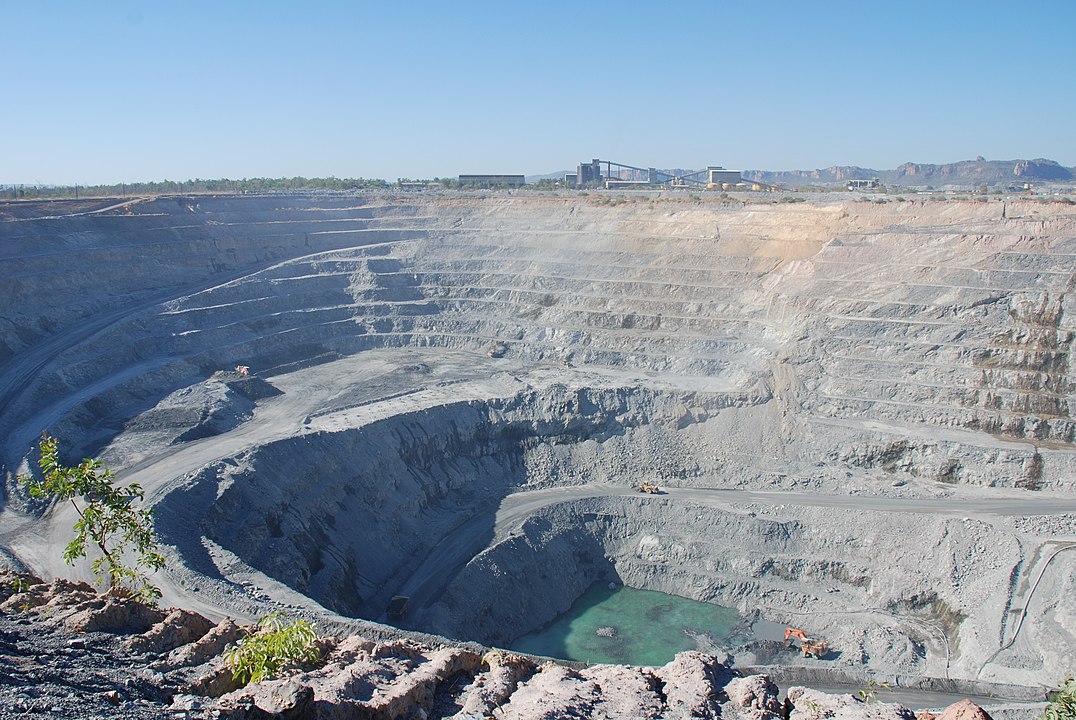Trump Backs Away From Uranium Quota
On July 12, President Trump surprisingly decided not to levy a quota on uranium imports, departing from his past enthusiasm for limiting purchases from abroad. The yearlong lead-up serves as the latest example of the president’s extensive power over trade.

Published by The Lawfare Institute
in Cooperation With

On July 12, President Trump surprisingly decided not to levy a quota on uranium imports, departing from his past enthusiasm for limiting purchases from abroad. The yearlong lead-up serves as the latest example of the president’s extensive power over trade.
Uranium is a crucial resource for the United States. Through its use in nuclear power plants, uranium provides 20 percent of electricity used in the U.S. every year. Yet U.S. uranium production has decreased since its peak in the 1950s, dropping off as a result of declines in the price of uranium as well as the ability of other countries to produce higher quality uranium than the U.S. By 2011, there were only three uranium mines functioning in the U.S., and in 2018, U.S. uranium mining was at its lowest level in 70 years.
As a result, about 93 percent of the uranium the United States uses comes from elsewhere, mainly from Canada, Australia, Russia, Kazakhstan and Uzbekistan. America’s reliance on foreign sources, particularly Russia, for such an important energy resource has left some observers concerned that other countries could suddenly cut off access to uranium, which could create an energy crisis.
Section 232 of the Trade Expansion Act of 1962
Section 232 of the Trade Expansion Act of 1962 gives the president the authority to enact restrictions on imports, if the restriction is deemed necessary for national security following an investigation and report by the secretary of commerce. Trump previously used the authority from Section 232 to enact tariffs on aluminum and steel imported from China and Turkey, among other countries.
Under Section 232, a party can petition the secretary of commerce to enact a limitation on imports. Upon receiving the petition, the secretary has 270 days to review whether the circumstances in question pose a threat to national security, at which point the secretary makes a recommendation for the president’s actions concerning the petition. If the secretary concludes that the imports in question threaten national security, the president then has 90 days to decide whether he concurs and, if so, what measures he is going to implement.
Recent administrations have expanded the definition of “national security” used in relation to Section 232. In 2001, during an investigation of steel imports, the Department of Commerce reinterpreted “national security,” noting “in addition to the satisfaction of national defense requirements, the term ‘national security’ can be interpreted more broadly to include the general security and welfare of certain industries, beyond those necessary to satisfy national defense requirements that are critical to the minimum operations of the economy and government.” In 2018, the Commerce Department again reinterpreted the definition. In a report on steel imports, the department argued that any industry that could have an economic impact could be considered as relating to national security.
The Petition for a Uranium Quota
In January 2018, two American uranium companies, Energy Fuels and Ur-Energy, submitted a petition to the Department of Commerce for a quota that would guarantee 25 percent of uranium sold in the U.S. would be from U.S. uranium mines.
In June 2018, the department responded to the petition by announcing an investigation specifically looking into whether America’s reliance on uranium was a national security risk warranting protective measures from the U.S. government. Over the next nine months, the Commerce Department investigated these matters and, in March, formally issued a report on whether to enact restrictions on uranium imports. Though its findings were not made public, the Commerce Department recommended boosting the domestic production of uranium in a separate report a month later—something that many took as a sign that the department had also endorsed tariffs on imports.
The uranium industry primarily used national security arguments to petition the Commerce Department to open an investigation. U.S. reliance on uranium from other countries has sparked two main national security concerns. First, some argue that, because Russia is the third largest supplier of uranium and a geopolitical rival to the U.S., America should not be reliant on Russia for its nuclear energy needs. Additionally, some maintain that, even beyond Russia, the U.S. should not import such a large amount of a vital resource, regardless of where it’s coming from.
Several uranium business leaders also wrote opinion pieces making the same point about uranium and national security in conservative media outlets known to be influential with the Trump administration, such as Fox News and the Washington Examiner.
Proponents of the quota cited the potential economic impact as well. Uranium mining companies viewed the quota as an opportunity to revitalize uranium mining and lobbied for the quota alongside their campaign for fewer environmental restrictions on uranium mining. Proponents claimed it would increase domestic uranium mining revenue from $150 million to $700 million, and U.S. uranium companies would go from producing 1.4 million pounds of uranium a year to 11 million pounds a year.
Not everyone was supportive of the idea of a quota, however, even among the political right. The Heritage Foundation published two pieces arguing that imported uranium had nothing to do with America’s actual defense policies and that the quota would only harm the economy, an argument backed up by the Daily Caller. Nuclear power generator companies also expressed concern that the quota could cost the nuclear industry up to $800 million a year. Several energy experts built off this argument by making the point that, at a time when the U.S. needs to invest in alternative energy, the quota would make nuclear power more expensive and prevent the development of alternative energy. Critics of the quota also argued that drastically cutting foreign imports might hurt ties with Canada and other important uranium-exporting allies.
The Fallout From Trump’s Decision
After the Department of Commerce’s completion of its report in April 2019, Trump had 90 days to decide whether to enact its recommendations. Though no one knew what Trump would decide, the Commerce Department’s report in June calling for increased domestic production of uranium led many U.S. uranium companies to believe Trump would decide in their favor. However, on the afternoon of July 12, Energy Fuels Inc.’s stock price fell 36.5 percent and Ur-Energy Inc.’s stock price fell 34 percent amid reports that Trump was not going to enact the quota. Late in the evening, just hours before the 90-day deadline, Trump made his decision. He announced he would not enact any restrictions on uranium importation, while confirming that the Commerce Department had recommended import restrictions in its report. Additionally, Trump’s statement left open the possibility of potential measures in the future, as it called for a “fuller analysis of national security considerations” and established a working group for this purpose, which was tasked with providing him another report and recommendations in 90 days.
Given that Trump is not enacting restrictions in this case, there likely will not be any legal action over his decision regarding the quota. The steel industry, however, has already challenged Trump’s use of Section 232 to enact steel tariffs. The Supreme Court denied the petition last month, but the petitioners still have the option to challenge the tariffs before the federal circuit court. However, both the Supreme Court and the U.S. Court of International Trade have upheld the president’s broad authority to use Section 232.
Congress is challenging Trump’s authority under Section 232, as Senate Republicans and House Democrats are working on a bill that would give Congress greater authority on trade matters under Section 232. There are ongoing disagreements, however, on how much to limit the president’s power. Any bill would likely need a two-thirds majority support in both chambers as Trump almost certainly would veto any restriction on his trade power.
Though Trump’s uranium decision provides a rare instance of his backing away from a potential trade war, it also underscores the extent of his authority over trade, especially where the secretary of commerce is willing to conclude that nearly any trade issue can be tied to national security. Under these conditions, President Trump has almost discretionary authority over the enactment of trade restrictions. Unless Congress changes the law, this concentration of power will not change.





